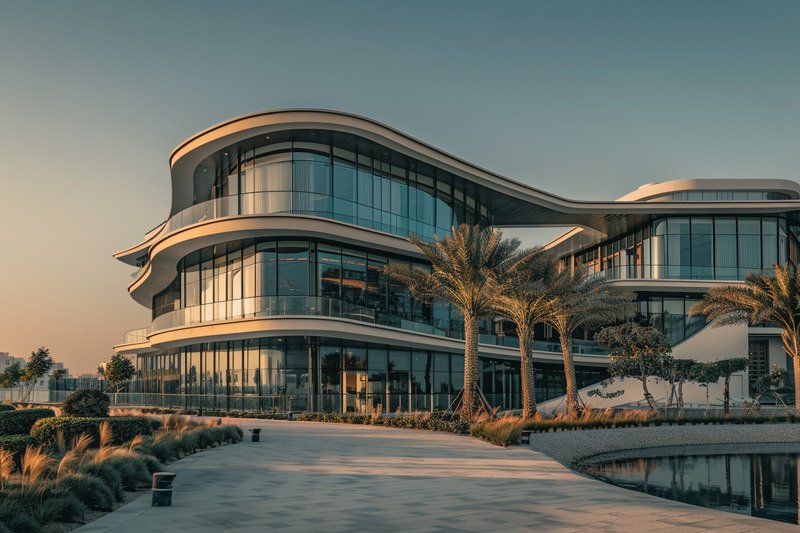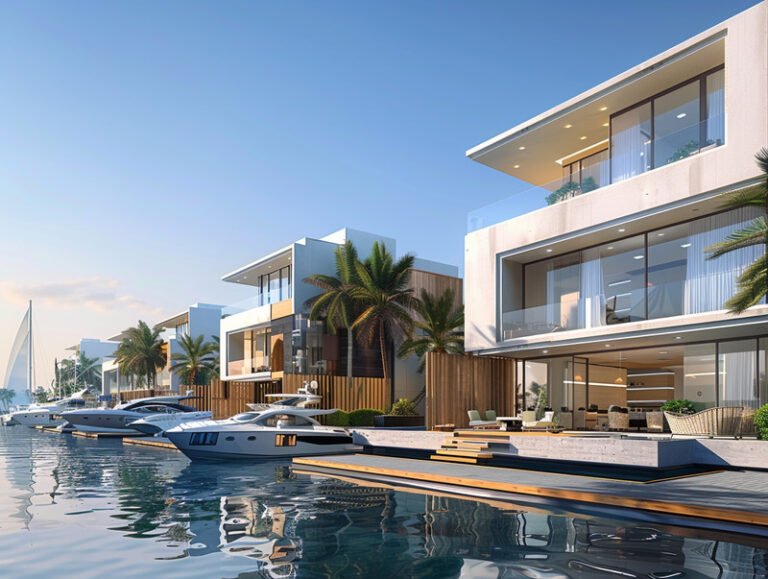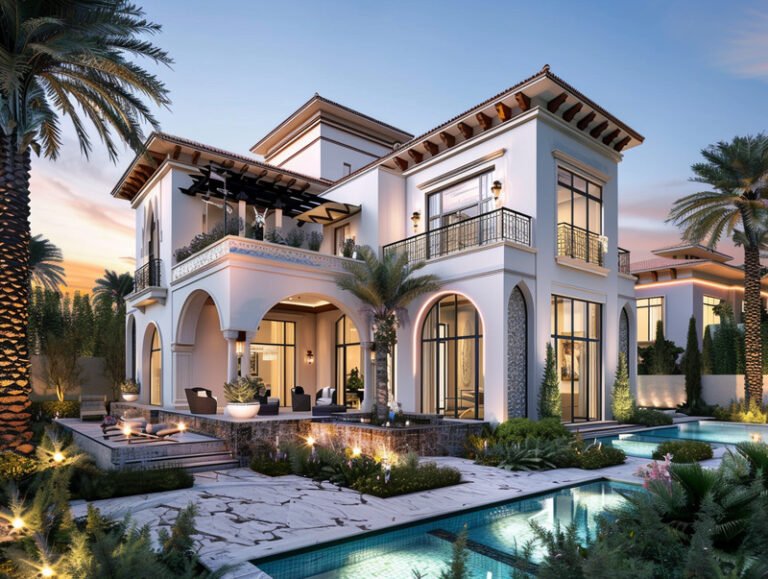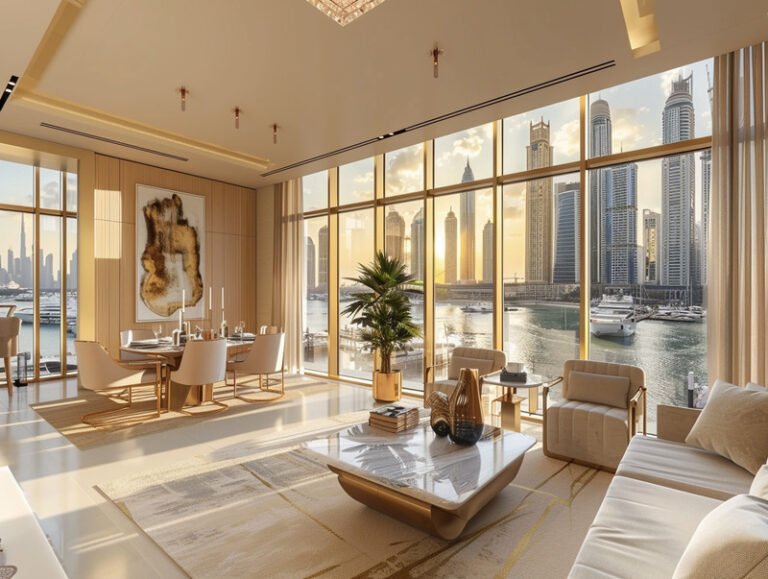Understanding Down Payment Requirements in Dubai

Understanding down payment requirements is crucial when purchasing property in Dubai. These requirements vary based on residency status, property type, and current regulations.
While navigating these complexities may seem daunting, knowledge of down payments can lead to significant savings.
Dubai's real estate market offers diverse opportunities, but careful consideration of financial obligations is essential. Minimum percentages for down payments differ for various property categories, and additional costs may apply.
For expatriates, the down payment requirement typically ranges from 20% to 25% of the property value. UAE nationals often benefit from lower rates, sometimes as low as 15%. First-time buyers may find special programs with more favorable terms.
Let us help you find the perfect property. Contact us to get started.
Off-plan properties usually require smaller initial payments, with installments spread over the construction period. However, resale properties often demand larger upfront costs.
It's important to factor in additional expenses such as registration fees, mortgage processing charges, and potential service charges when calculating the total down payment.
Key Takeaways
Down payments are a crucial aspect of buying property in Dubai's real estate market. These upfront payments, typically a percentage of the property's value, vary based on several factors. Understanding the requirements is essential for both local and international buyers looking to invest in Dubai's diverse property landscape.
The minimum down payment in Dubai generally ranges from 20% to 30% of the property value. However, this can fluctuate depending on the buyer's residency status, the type of property, and its value. UAE nationals often enjoy lower down payment requirements compared to expatriates and non-residents.
Different property types have varying down payment structures. Off-plan properties typically require 10-20% upfront, while luxury properties may demand up to 50%. Government regulations set minimum down payments at 25% for expatriates and 20% for UAE nationals on properties under AED 5 million.
Buyers can navigate Dubai's real estate market more effectively by negotiating terms, saving strategically, and consulting with professionals. This approach helps in understanding and meeting the specific down payment requirements for their desired property investment in Dubai.
Minimum Down Payment Percentages
Minimum down payment percentages for property purchases in Dubai vary based on several factors. These include the buyer's residency status, whether it's a first or subsequent property, and the property's value. The UAE Central Bank sets these requirements, but individual lenders or developers may have stricter criteria.
For first-time buyers purchasing properties under AED 5 million, a 20% down payment is required. This applies to both residents and non-residents. Properties valued over AED 5 million require a 25% down payment for first-time buyers.
Second or subsequent property purchases necessitate a 30% down payment, regardless of the property's value. Non-residents typically need to provide a 25% down payment for any property purchase in Dubai.
Off-plan properties or buyers with higher risk profiles may face more stringent down payment requirements. It's crucial to consult with your chosen lender or developer for their specific conditions before proceeding with a purchase.
Residency Status Impact
Residency status significantly impacts down payment requirements for property purchases in Dubai. UAE nationals often enjoy the most favorable terms, with down payments starting at 20% for properties up to AED 5 million. Expatriate residents typically need 25% for properties in this range, while non-residents face stricter requirements, usually 30% minimum.
These percentages can increase for higher-value properties across all residency categories. Properties over AED 5 million may require down payments of 35% or more, regardless of residency status.
Some developers offer more flexible terms during promotional periods. However, it's crucial to verify these offers with financial institutions to ensure compliance with UAE Central Bank regulations.
Always consult with local real estate professionals and financial advisors for the most up-to-date information on down payment requirements in Dubai's dynamic property market.
Property Types and Requirements
Property types significantly impact down payment requirements in Dubai's real estate market. Off-plan properties typically require 10-20% of the purchase price, attracting investors and first-time buyers.
Ready properties demand higher down payments, ranging from 25-50% depending on value and location. Luxury properties and villas may require up to 50%, while apartments and townhouses in affordable areas often need 20-30%.
Commercial properties usually require 30-40% down payment. These percentages can vary based on the developer, location, and current market conditions. Properties in freehold areas for expatriates may have different requirements compared to those in areas restricted to UAE nationals.
Luxury properties in prime locations like Palm Jumeirah or Emirates Hills often require larger down payments due to their higher overall cost and perceived investment value. Affordable housing projects in areas like Dubai South or Dubailand may offer more flexible down payment options to attract a wider range of buyers.
Commercial properties in business districts such as Business Bay or DIFC typically have stricter down payment requirements due to their potential for high returns. Always consult with a Dubai-based real estate professional or financial advisor for the most up-to-date information on specific property types and their associated down payment requirements.
Mortgage Loan-to-Value Ratios
Mortgage loan-to-value (LTV) ratios are crucial when buying property in Dubai. Set by the UAE Central Bank, these ratios determine how much you can borrow based on the property's value and your buyer status. They differ for UAE nationals, expats, and first-time buyers, affecting the required down payment.
For UAE nationals buying their first property up to AED 5 million, the LTV ratio is 85%, requiring a 15% down payment. Properties above AED 5 million have a 75% LTV ratio, needing a 25% down payment.
Expats face different ratios. For first properties up to AED 5 million, the LTV is 80%, requiring a 20% down payment. Properties over AED 5 million have a 65% LTV ratio, necessitating a 35% down payment.
These ratios apply to completed properties. Off-plan or under-construction properties generally have lower LTV ratios, requiring larger down payments regardless of residency status.
Government Regulations and Policies
Dubai's property market is significantly influenced by government regulations and policies that shape down payment requirements. These regulations, overseen by the Dubai Land Department and the UAE Central Bank, aim to maintain market stability and protect buyers and lenders.
The minimum down payment requirement is a key policy affecting property purchases in Dubai. For expatriates, a minimum 25% down payment is required for properties under AED 5 million, increasing to 35% for those above. UAE nationals benefit from lower requirements, with a 20% minimum for properties under AED 5 million.
These regulations can change based on market conditions. The government may adjust requirements to cool an overheating market or stimulate a sluggish one. Staying informed about current policies is crucial, as they directly impact property purchase ability in Dubai.
It's advisable to consult with a licensed real estate professional or financial advisor to ensure compliance with the latest regulations when considering property investment in Dubai.
Developer Incentives and Offers
Dubai's property market is known for its innovative developer incentives and attractive offers. These perks are designed to entice buyers and make property purchases more accessible. From flexible payment plans to reduced upfront costs, developers employ various strategies to ease the financial burden on potential homeowners and investors.
Many developers offer post-handover payment plans, allowing buyers to move in and pay the remaining balance over time. This significantly reduces initial costs and makes homeownership more attainable.
Some common incentives include waived or reduced registration fees, saving buyers thousands of dirhams. Complimentary furnishing packages and covered service charges for a specified period are also popular perks that add value to purchases.
Guaranteed rental returns for a set number of years are particularly appealing to investors. These offers provide a level of financial security and can make investment properties more attractive.
Built-in payment plans that spread costs over several years are increasingly common. These arrangements effectively reduce the need for large down payments, making properties more accessible to a wider range of buyers.
It's crucial to carefully review and compare offers from different developers. This ensures you secure the best deal that aligns with your financial situation and property goals in Dubai's dynamic real estate market.
Hidden Costs to Consider
When buying property in Dubai, several hidden costs can catch buyers off guard beyond the advertised price and down payment. These include registration fees, agency fees, mortgage-related expenses, property transfer fees, and potential charges for off-plan purchases. Maintenance fees and home insurance also contribute to the overall financial commitment. Understanding these additional expenses is crucial for accurately budgeting and preparing for property ownership in Dubai.
Registration fees typically amount to 4% of the property's value, payable to the Dubai Land Department. This fee is usually split between buyer and seller. Agency fees, if working with a real estate agent, often reach around 2% of the purchase price.
Mortgage-related expenses, such as valuation fees and mortgage registration fees, can add several thousand dirhams to the total cost. Property transfer fees generally amount to about 0.25% of the property value.
For off-plan purchases, additional charges may apply for connecting utilities and services. Annual maintenance fees, or service charges, cover the upkeep of common areas and facilities in buildings or communities.
Home insurance is another cost to consider, often required by mortgage lenders.
Negotiating Down Payment Terms
Negotiating down payment terms in Dubai's property market can offer some flexibility. The standard down payment is typically 20-25% of the property's value, but there's room for negotiation in certain situations.
Your bargaining power may increase if you're dealing with a motivated seller or if the property has been on the market for an extended period. When approaching negotiations, it's essential to have a strong financial profile.
Lenders and sellers in Dubai are more likely to be flexible with buyers who've a stable income, good credit history, and substantial assets. You might be able to negotiate a lower down payment by offering a higher interest rate or agreeing to a shorter loan term.
Some developers in Dubai offer attractive payment plans for off-plan properties, allowing you to spread the down payment over several installments. This can be particularly beneficial for first-time buyers or investors looking to manage their cash flow.
It's crucial to verify that any agreements comply with UAE Central Bank regulations. Dubai's real estate market is highly regulated, and adherence to these rules is essential for a smooth transaction.
Consulting with a local Dubai real estate professional or financial advisor can provide valuable insights into current market conditions. They can help you develop an effective negotiation strategy tailored to Dubai's unique property landscape.
Saving Strategies for Buyers
Saving for a down payment in Dubai's real estate market requires strategic planning. Creating a dedicated savings account for your down payment allows easy progress tracking. Set up automatic monthly transfers from your main account to ensure consistent contributions.
Review your expenses to identify areas where you can cut back, redirecting those funds towards your goal. Explore additional income streams like part-time work or freelancing to boost savings. Consider high-yield savings accounts or low-risk investments to maximize returns.
Take advantage of Dubai's rent-to-own schemes, which allow you to allocate a portion of your rent towards a future down payment. Explore government-backed savings programs or employer-sponsored housing benefits that may be available to you in Dubai.
Stay disciplined and focused on your goal. Track your progress regularly and adjust your strategy as needed to meet Dubai's specific down payment requirements.
Consider Dubai's unique real estate market trends when setting your savings targets. Research different areas and property types to understand the varying down payment expectations across the emirate.
Attend property exhibitions and seminars in Dubai to gain insights into the market and potential saving strategies specific to the region. Network with real estate professionals who can provide valuable advice on local saving practices.
Conclusion
Understanding Dubai's down payment requirements is crucial for property purchases in the emirate. These requirements vary based on residency status, property type, and loan-to-value ratios. Expatriates typically need a higher down payment compared to UAE nationals. Off-plan properties often require lower initial payments but may involve installment plans.
For ready properties, non-residents usually need to pay 30-40% as a down payment, while residents may only need 20-25%. Luxury properties and second homes often require larger down payments. The UAE Central Bank regulates mortgage lending, setting maximum loan amounts based on property value and borrower's status.
Some developers offer attractive payment plans, especially for off-plan properties. These may include post-handover payment options, reducing the initial financial burden. However, buyers should be aware of additional costs like registration fees, agent commissions, and potential service charges.
Thorough research and financial planning are essential. Consulting with real estate professionals and financial advisors can help navigate Dubai's dynamic property market and ensure compliance with local regulations.
Let us help you find the perfect property. Contact us to get started.






